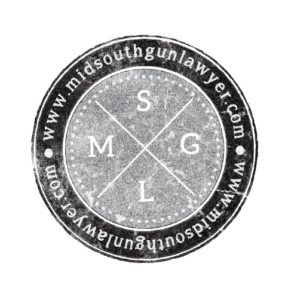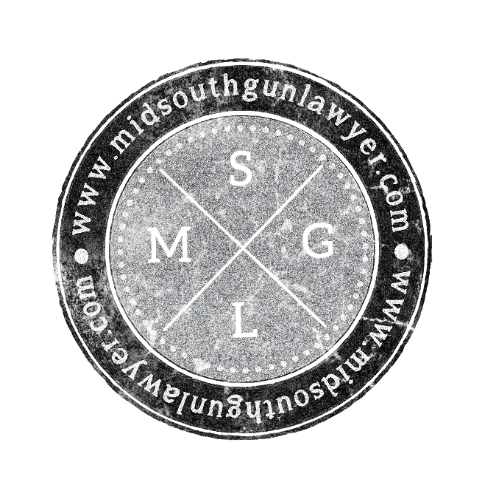 Employees in Mississippi, like many other states, are permitted to store a firearm in their locked personal vehicle while on their employer’s parking lot unless the employer has taken the necessary steps to provide adequate security. While this does nothing to alleviate the employee’s concerns about driving to or from work while unarmed, it does at least offer a modicum of assurance the employee will not be assaulted in the employer’s parking lot. Whether right or wrong, the Mississippi Legislature made this policy decision years ago but only now are employers starting to pay attention.
Employees in Mississippi, like many other states, are permitted to store a firearm in their locked personal vehicle while on their employer’s parking lot unless the employer has taken the necessary steps to provide adequate security. While this does nothing to alleviate the employee’s concerns about driving to or from work while unarmed, it does at least offer a modicum of assurance the employee will not be assaulted in the employer’s parking lot. Whether right or wrong, the Mississippi Legislature made this policy decision years ago but only now are employers starting to pay attention.
Read below for an example putting all these principles into context.
_____________________
Joseph Parker was hired by Leaf River Cellulose in October 2008 to work at its plant located in New Augusta, Perry County, Mississippi. On December 12, 2013, Leaf River received a report from another employee that Parker had a handgun in his personal vehicle located in an employee parking area. Leaf River thereafter requested and received permission to search Parker’s vehicle. This search confirmed the presence of a handgun within Parker’s locked, private vehicle equipped with tinted windows.
Immediately following the vehicle search Leaf River suspended Parker’s employment and directed him to leave the premises. On December 13, 2013, Defendant terminated Parker’s employment in violation of its own policies and in violation of Mississippi law.
Mississippi Code Annotated § 45-9-55(1) provides that, ““a public or private employer may not establish, maintain, or enforce any policy or rule that has the effect of prohibiting a person from transporting or storing a firearm in a locked vehicle in any parking lot, parking garage, or other designated parking area.”
Leaf River had an established employee policy generally prohibiting an employee “from bringing any firearm or other weapon onto any property owned . . . by the company, except as allowed by applicable law. . . . You are also prohibited from carrying or transporting any weapon in your own vehicle while on company property and/or while using company transportation, . . . except as allowed by applicable law.” While the “applicable law” permitted Parker to have a gun in his personal vehicle Leaf River still terminated his employment for violating their illegal policy.
Parker sued Leaf River in federal court for wrongful termination but the District Court for the Southern District of Mississippi dismissed the lawsuit. Parker appealed to the Fifth Circuit. Parker’s appeal was dismissed but before the opinion was final another panel of judges from the Fifth Circuit decided in the case of Swindol v. Aurora Flight Sciences Corporation that the Mississippi Supreme Court should address the employment at will and immunity questions. The Fifth Circuit certified the question of:
Whether in Mississippi an employer may be liable for a wrongful discharge of an employee for storing a firearm in a locked vehicle on company property in a manner that is consistent with [Mississippi Code] Section 45-9-55.
On March 24, 2016, the Mississippi Supreme Court answered the question “yes.” The Supreme Court stated:
We find that an employer may be liable and that Section 45-9-55(5) does not shield Aurora from liability under the facts of this case.
The Supreme Court stated that Mississippi Code Annotated § 45-9-55 is a Legislatively-created exception to the employment-at-will doctrine. The Supreme Court also found that the immunity provided in sub-section (5) was “for the actions of employees or third parties.” The Supreme Court stated that the “occurrence” mentioned by sub-section (5) of the statute was not the employer’s violation of sub-section (1). In other words, the Supreme Court said that the immunity applies to a workplace shooting but does not immunize the employer for terminating an employee for (legally) having a gun in the employee’s car. This decision is the opposite of that of the district court and Fifth Circuit which dismissed Mr. Parker’s case.
Thus, there is a right to sue an employer who establishes, maintains, or enforces any policy or rule that has the effect of prohibiting a person from transporting or storing a firearm in a locked vehicle in any parking lot, parking garage, or other designated parking area unless it is a private employer who restricts access to the parking lot through a gate, guard, or other means.
Not only does this law prevent terminating or reprimanding the employee for having a gun in his/her personal, locked vehicle, the statute also says that it is illegal to “establish” or “maintain” any such employment policy.
_____________________
*** UPDATE #1 : On Thursday, July 28, 2016, the Mississippi Supreme Court denied rehearing of its earlier 9-0 decision that employees terminated in violation of Miss. Code Ann. section 45-9-55 may sue their employer. This means that the Parker v. Leaf River Cellulose and Swindol v. Aurora Flight Sciences Corporation cases should be remanded by the Fifth Circuit back to the US District Courts for a determination of how much damage each employee suffered because of their employers’ illegal action.
One other thing for employers and employees to keep in mind is that Miss. Code Ann. section 45-9-55 not only prohibits enforcement of a no-guns-in-parking-lot policy, it also prevents the employer from establishing or maintaining such a policy. Thus, just having a policy in the personnel manual is a violation even if the employer does not terminate the employee.
*** Update #2 ***
Finally, over 2 1/2 years after this illegal termination, the United States District Court for the Southern District of Mississippi has vindicated Mr. Parker by entering an order (court’s opinion) which says that Leaf River is liable to Parker for his illegal termination. A trial on the issue of how much Leaf River was scheduled for September 2017 but the case settled shortly beforehand. At trial the Court was going to consider whether Leaf River was liable to Parker for punitive damages for firing him in violation of the law.
Although it has been a long road, Parker and his counsel would like to publicly thank the court for the speed in which it addressed the opposing motions for summary judgment.
As you can read in the court’s opinion, placing a sign saying “no guns” (paraphrase) and “employee parking” is not legally sufficient under the statute (cited below). Similarly, putting in an alleged security station across a street, nearly 1/2 a football field away, is not good enough either. Leaf River illegally fired Parker and now they are going to pay for it.
*** Update #3 ***
In another stunning example of employer policies violating the law, the case of Smith v. Huntington Ingalls, Miss. So. Dist. Civil No. 1:16cv406-HSO-JCG, held consistently with Parker v. Leaf River that the use of no-trespassing signs, security patrols, and closed circuit cameras monitored in a central security station does not meet the requirements of Miss. Code § 45-9-55(2). Accordingly, yet again Huntington Ingalls will have to pay a wrongfully terminated employee the damages that he suffered for exercising his constitutionally and statutorily protected rights. Like Parker, Smith may be entitled to punitive damages for his former employer’s bad policy.
*** Update #4 ***
A similar case under a different state’s (Illinois’s) similar law has also resulted in a victory for the employee. Read more from the NRA’s press release.

